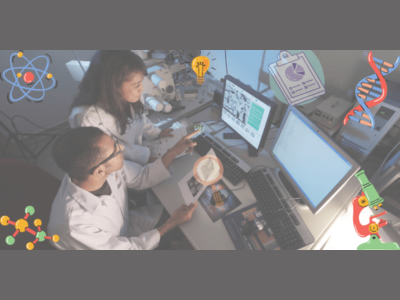
Standardization (Scientific) Division – Overview, Process & Role
During British rule, India faced severe economic challenges and lacked the infrastructure necessary for quality control in trade and manufacturing. Recognizing the urgent need for quality assurance to protect consumers from exploitation, the Indian government established a specialized body — the Indian Standards Institute (now BIS) — with a clear mission: to set and enforce quality standards across products and services.
The Standardization (Scientific) Division plays a key role in this mission by developing technical standards to ensure safety, functionality, and sustainability in various sectors of industry and commerce.
What is Standardization?
Standardization refers to the systematic process of developing, implementing, and maintaining standards for products, processes, or activities. It is done in collaboration with all stakeholders and aims to:
- Ensure consistency and quality
- Support sustainable development
- Meet functional, regulatory, and safety requirements
- Enhance consumer protection and industry trust
Main Objective of the Standardization (Scientific) Division
The primary goal of this division is to support industries in the development of national standards by:
- Helping businesses draft new standards
- Reviewing and incorporating international quality frameworks
- Periodically updating existing standards in coordination with relevant government bodies and stakeholders
How Standards Are Formulated in India
The Bureau of Indian Standards (BIS) is responsible for the formulation and revision of standards in India. The process begins when a proposal is submitted by:
- Central or State Government departments
- Consumer organizations
- Industry associations
- Professional bodies
- Individual manufacturers or members of BIS technical committees
The Step-by-Step Standard Formulation Process
-
Proposal Submission
A written request is submitted to BIS, either to develop a new standard or to revise/cancel an existing one. -
Evaluation by Division Council
The concerned Division Council evaluates the proposal’s importance and its relevance to consumers and industry needs. -
Committee Assignment
A new technical committee may be formed, or an existing one is tasked with drafting the standard. -
Research and Deliberation
The committee studies all aspects — including safety, national priorities, consumer health, and global trends. -
Drafting and Feedback
After consultations, a draft standard is prepared and refined based on stakeholder feedback. -
Approval and Publication
The final draft is submitted to the Division Council Chairman for approval. Once accepted, it is officially published by BIS.
Workflow of the Standardization (Scientific) Division
1. Project Initiation
The process often begins with a manufacturer requesting the development of standards for a product not yet covered by BIS. This includes collecting technical specifications and sometimes product samples.
2. Mobilization
A technical team is assembled to discuss the scope, features, and technical specifications. This stage involves detailed planning and research.
3. Standard Drafting
Based on the data collected, the team drafts a standard outlining product characteristics, safety parameters, and quality benchmarks.
4. Scrutiny by BIS
The draft is submitted to BIS for review. A secondary expert committee conducts further technical evaluations.
5. Approval and Adoption
If BIS finds the proposal satisfactory, it is approved and finalized. The published standard is then circulated to all relevant departments for implementation.
Sectors Covered by the Standardization (Scientific) Division
The division formulates standards across a wide range of industries:
- Chemicals
- Construction and Civil Engineering
- Information Technology and Electronics
- Food and Agriculture
- Electrotechnology
- Management Systems and Mechanical Engineering
- Medical Equipment and Hospital Planning
- Metallurgical Engineering
- Petroleum, Coal, and Related Products
- Transportation and Automotive Engineering
- Textiles
- Water Resources
- General Engineering and Service Industries
How Induce India Can Help You
Don't let the complexity of certification discourage you. At Induce India, we provide end-to-end assistance for certification under the Standardization (Scientific) Division. Our goal-oriented, transparent, and cost-effective approach ensures that your business:
- Meets all standardization compliance requirements
- Receives expert support throughout the approval process
- Gains quicker access to BIS certification and standard adoption
We offer complete guidance, documentation support, and regulatory compliance services to simplify your journey from proposal to certification.
Get in Touch
Induce India – Simplifying Certification and Compliance
101, Khudi Ram Bose Marg, Pratap Nagar, Mayur Vihar, New Delhi – 110091
+91-7503304082 | 📧 sales@induceindia.com
Mon–Sat: 9:30 AM – 6:30 PM
